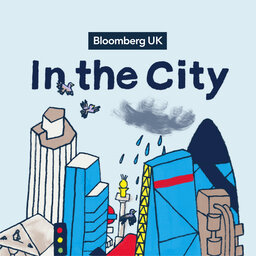Last weekend, Bloomberg revealed that activist investor Elliott Investment Management had built a large stake in BP Plc. BP shares climbed as the news broke, perhaps attributable to the fact that Elliott has a track record of driving significant change within companies. Investors may also see this as a timely intervention, given BP’s performance has slumped over the past few years, relative to its competitors.
On this week’s In The City, hosts Francine Lacqua and Allegra Stratton sit down with Bloomberg’s Aaron Kirchfeld to discuss the potential geopolitical ramifications of Elliott’s move, why BP’s poor performance over the last few years made a takeover more likely and how the shift away from net-zero, despite the accelerating climate crisis, has facilitated such a move.
 In The City
In The City


